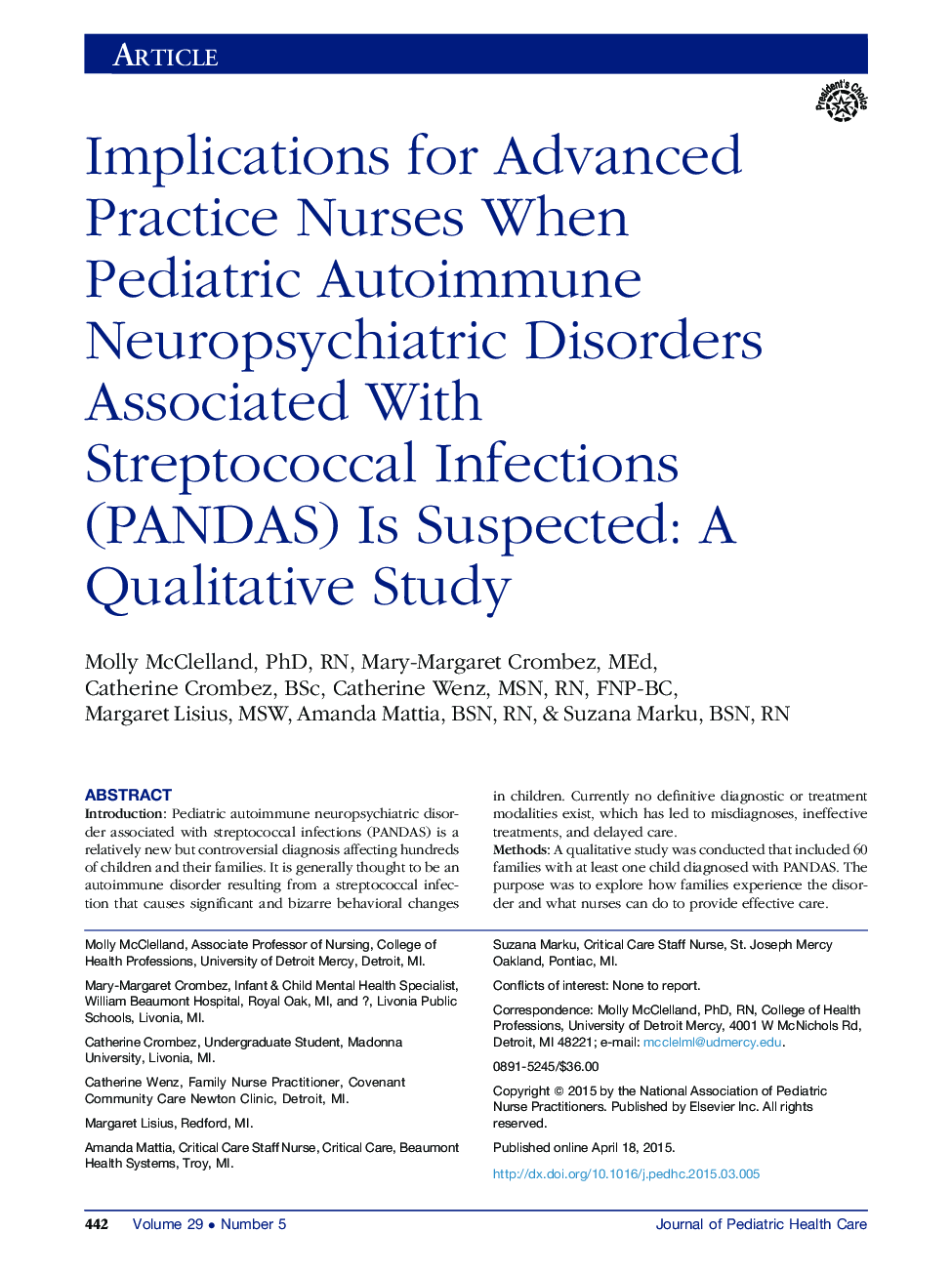| Article ID | Journal | Published Year | Pages | File Type |
|---|---|---|---|---|
| 2661768 | Journal of Pediatric Health Care | 2015 | 11 Pages |
•This study included 124 people (60 family units) living with suspected PANDAS.•A qualitative analysis revealed the themes of fear, frustration, and not being heard.•This nursing research study is the first to explore the PANDAS disorder.•Nursing implications are suggested for nurses caring for this population.
IntroductionPediatric autoimmune neuropsychiatric disorder associated with streptococcal infections (PANDAS) is a relatively new but controversial diagnosis affecting hundreds of children and their families. It is generally thought to be an autoimmune disorder resulting from a streptococcal infection that causes significant and bizarre behavioral changes in children. Currently no definitive diagnostic or treatment modalities exist, which has led to misdiagnoses, ineffective treatments, and delayed care.MethodsA qualitative study was conducted that included 60 families with at least one child diagnosed with PANDAS. The purpose was to explore how families experience the disorder and what nurses can do to provide effective care.ResultsUsing paradigmatic analysis of transcribed interviews, three themes were identified: fear, frustration, and not being heard.DiscussionResults from this study suggest that more information is needed to better understand this challenging phenomenon from both medical and nursing perspectives. The study also reaffirms the importance of practicing the art of nursing, especially when the science is not yet established.
